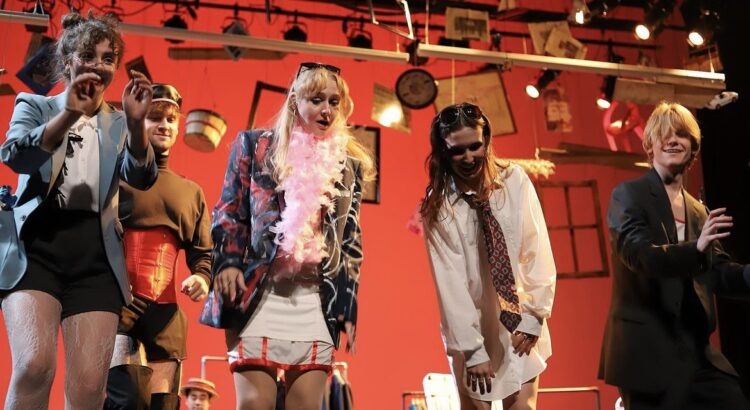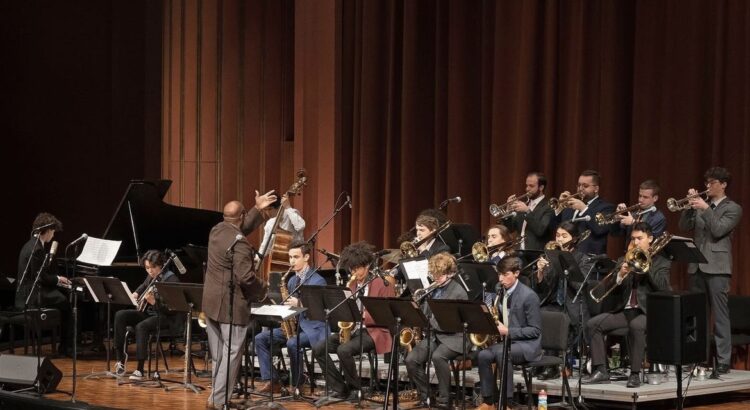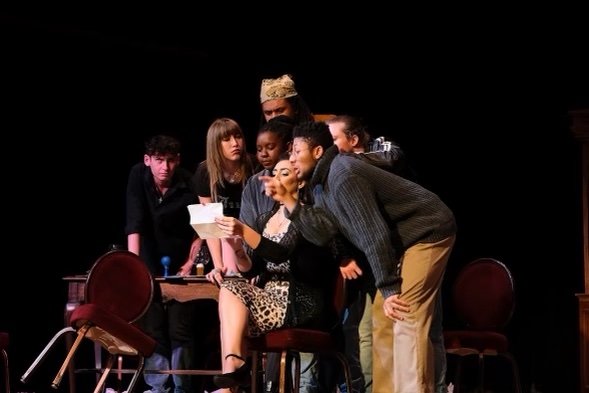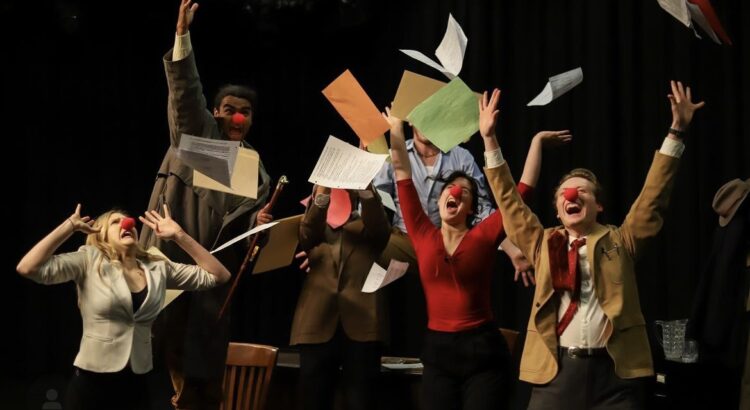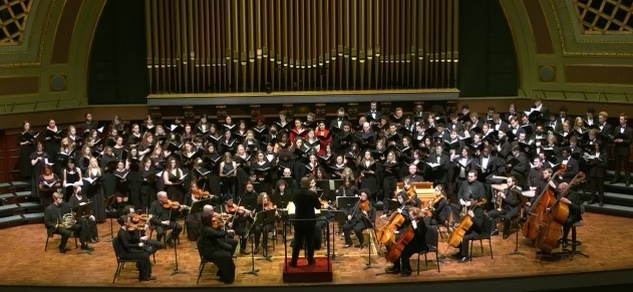Rude Mechanicals is a student-run theater organization founded in 1996 specializing in producing plays. This semester’s performance of Attempts on Her Life (1997) by Martin Crimp was bold and thought-provoking, an experimental masterpiece of theater. Director Tiara Partsch crafted this perplexing script into a chaotically constructed gem.
The most fascinating aspect of this show is how there are no named characters in the script. The dialogue exists on its own and remains completely open to interpretation by the director and the creative team. There are no set characters, and there is no plot. The actors exist as thoughts, people, or concepts that are never truly defined. From what I understood, Crimp was emphasizing the deconstruction of theater, focusing on independent facets of a named ‘Anne’ or ‘Anny’s’ life. It’s important to note that Anne is not just a defined person but also a heroine of a film, a porn star, a conversation piece among friends, a car, or a concept. This piece surely demanded lots of attention and open-mindedness from the audience.
At some points, the drama was difficult to navigate as an audience member who is not as seasoned in experimental theater. Although, the originality of the dialogue was clear through the lack of a storyline. Overall, Crimp’s urge to condemn a coherent identity in society through this text was understood. There are beautifully crafted monologues in this piece that were delivered exceptionally by the troupe of actors. Their attention to small details and their meticulous handling of the material were admired by the audience.
The design for this show was brilliant. The objects hung over the stage were a perfect implication of the abstract nature of the show. I loved the eclectic colors and textures throughout the costumes, while the minimal set pieces did not wash the actors out of the Mendelssohn stage. William Webster was in charge of the scenic design with Ellie Van Engen cultivating the costume design for the show.
Attempts on Her Life ran December 1-3 at the Lydia Mendelssohn Theater. Next semester, Rude Mechanicals will present Diana Son’s Stop Kiss directed by Reese Leif. The show will perform April 19-21st with auditions mid-semester.
Images thanks to @UMRUDES on Instagram.

